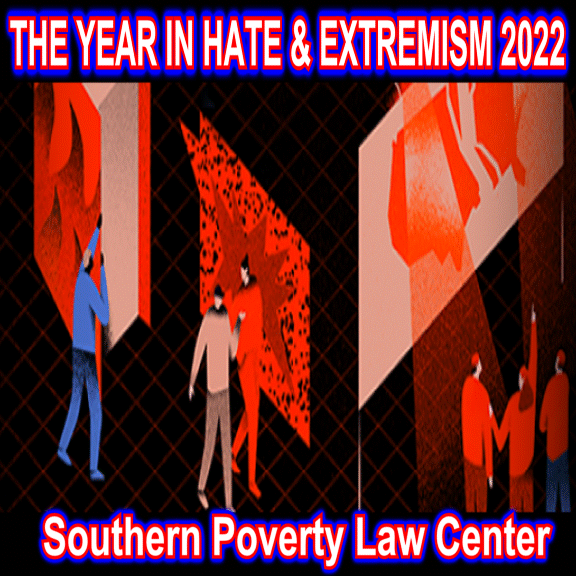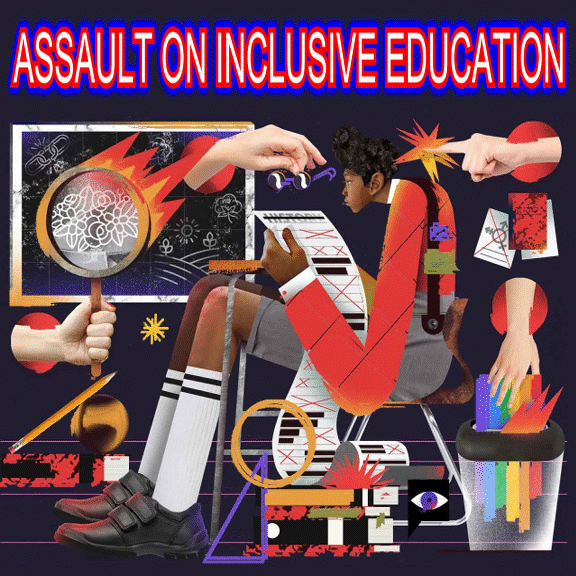
SCHOOL CHOICE CHOOSES JIM CROW
Are you ready for a deep dive into the world of school segregation? No? Well, too bad, because we're diving in anyway! And don't worry, we'll make it fun. After all, what's more exciting than systemic inequality?
So, here's the deal: America's public schools are more segregated than they were under Jim Crow. Yeah, you read that right. It's not just a thing of the past. According to a report by the U.S. Government Accountability Office (GAO), more than a third of students attended a predominantly same-race/ethnicity school during the 2020-21 school year. And 14% of students attended schools where almost all of the student body was of a single race/ethnicity. This is worse than in the late 1960s, when 77% of Black students across the nation attended majority nonwhite schools. Yikes.
So, what's causing all this segregation? Well, it turns out that charter schools and vouchers have played a big role. These were supposed to offer more choice and innovation to families, but often end up isolating and disadvantaging students of color, low-income students, English language learners, and students with disabilities. Oops.
Charter schools are publicly funded but privately run, and vouchers are public funds that can be used to pay for private school tuition. Both options have been promoted by some politicians and advocates as a way to improve educational outcomes and equity, but research shows that they have mixed or negative effects on student achievement, accountability, and integration.
Charter schools tend to be more segregated than traditional public schools, especially in urban areas where they serve mostly Black and Hispanic students. A study by the Civil Rights Project at UCLA found that charter schools are "among the most segregated for Black and Latino students". Charter schools also tend to enroll fewer students with disabilities and English language learners than traditional public schools. Moreover, charter schools often have less experienced teachers, higher teacher turnover rates, lower salaries, and less unionization than traditional public schools. So much for innovation.
Vouchers also tend to increase segregation by allowing families to opt out of public schools and enroll in private schools that may have selective admission criteria, religious affiliation, or homogeneous student populations. Vouchers also divert public funds from public schools that serve the majority of students, especially those who need more resources and support. A review by the Economic Policy Institute found that vouchers "have failed to deliver on promised improvements in educational outcomes". Vouchers also raise constitutional issues regarding the separation of church and state, as most private schools that accept vouchers are religiously affiliated.
But wait, there's more! Some critics argue that charter schools and vouchers are part of a larger agenda to undermine and privatize public education, which is a cornerstone of democracy and social justice. They point out that charter schools and vouchers originated in America's racially segregated past, as a way for white families to avoid sending their children to integrated public schools after the Brown v. Board of Education decision in 1954. They also note that charter schools and vouchers are often supported by wealthy donors, corporations, foundations, and political groups that have a vested interest in reducing public spending, weakening teacher unions, and influencing curriculum and pedagogy.
So, what can we do about all this? Well, there's no simple or quick fix for this problem. However, some possible steps that could help reduce segregation and promote integration include:
- Reversing the trend of school district secession, which allows affluent and predominantly white communities to break away from larger and more diverse districts and form their own exclusive school systems. Yeah, no more exclusive clubs for rich kids.
- Enforcing civil rights laws and court orders that mandate desegregation plans and monitor compliance with them. You know what they say: if you can't beat 'em, sue 'em.
- Providing incentives and support for voluntary interdistrict transfer programs that allow students to attend schools outside their assigned zones or districts based on their preferences and availability of seats. Let's mix it up!
- Creating more magnet schools that offer specialized curricula or programs that attract students from different backgrounds and foster academic excellence and diversity. Who doesn't love a good magnet?
- Implementing controlled choice policies that balance parental choice with equity goals by assigning students to schools based on their preferences and other factors such as socioeconomic status, race/ethnicity, academic achievement, or special needs. No more cherry-picking for the rich and privileged.
- Increasing funding and resources for high-poverty and high-minority schools that serve the most disadvantaged students and provide them with quality education and support services. Let's invest in our future!
- Improving teacher preparation and professional development programs that equip teachers with the skills and knowledge to teach diverse students and address their academic and social needs. Teachers are superheroes!
- Promoting multicultural education and anti-bias curricula that foster respect, understanding, and appreciation for different cultures, perspectives, and experiences among students and staff. Let's celebrate diversity!
- Encouraging family and community involvement and collaboration that build trust, communication, and partnerships among stakeholders of different backgrounds and interests. It takes a village!
School segregation is not only a moral and legal issue, but also an educational and economic one. It affects the quality of education, the opportunities for success, and the social cohesion of our society. So let's work together to create more integrated and equitable schools for all students. And maybe throw in some jokes along the way. After all, laughter is the best medicine.
U.S. schools remain highly segregated, government report finds - NPR. https://www.npr.org/2022/07/14/1111060299/school-segregation-report.
PolitiFact | Are public schools as segregated today as in 1960s?. https://www.politifact.com/factchecks/2022/jun/08/bobby-scott/are-american-schools-more-segregated-today-1960s/.
Opinion | Dealing With Our Segregated, Jim Crow Education System - The .... https://www.nytimes.com/2021/05/21/opinion/sunday/education-racism-segregation.html.








